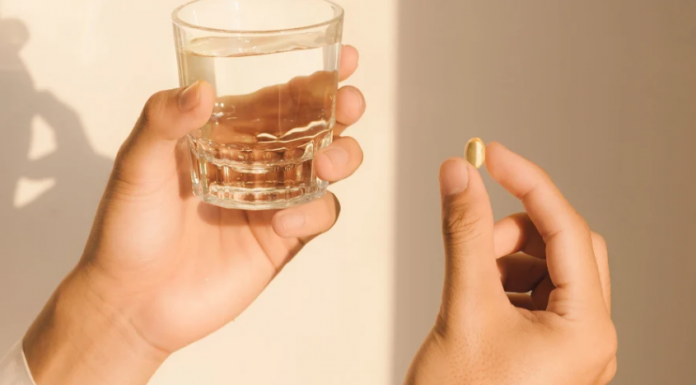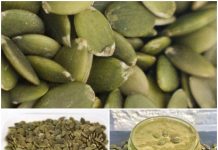Vitamin D is a crucial nutrient for our health and well-being for many reasons (mood, bone health, immunity, etc.).* Unfortunately, many of us are not getting enough. Research shows that 93% of Americans fail to get 400 IU of vitamin D per day from their diet – and the science clearly shows that 400 IU is not nearly enough.
So it’s no surprise that vitamin D supplementation has become such a hot topic. However, to get the benefits of the sunshine vitamin in supplement form, you don’t just grab the first bottle you see and open it at random. On the contrary, a good supplement routine will do your health and your wallet a world of good.
So when is the best time to take vitamin D and how do you get the most out of your regimen? Here’s what the experts have to say.
The benefits of vitamin D supplementation.
The reason vitamin D supplements have become such a necessity for most people: “There are virtually no good natural food sources of vitamin D,” says renowned researcher Michael Holick, M.D., Ph.D., professor of medicine at Boston University and author of The Vitamin D Solution*.
Given that a 3-ounce serving of farmed salmon contains about 447 IU, a cup of fortified milk offers up to 100 IU, and 8 ounces of vanilla yogurt provides only 86 IU, you’d have to eat a truly unrealistic amount of vitamin D-containing foods to accumulate a significant amount (i.e., an amount to achieve vitamin D sufficiency). “You really can’t get enough vitamin D from your diet,” Holick confirms.
And while you can get some vitamin D from the sun, it’s still virtually impossible to meet your needs from diet and safe skin exposure alone, according to Holick. “Unless you’re a lifeguard, it’s unrealistic to think you can get enough vitamin D exposure from the sun,” he says.
In fact, his research on vitamin D levels found that mean serum levels of 25-hydroxyvitamin D [25(OH)D] (the body’s clinical biomarker for vitamin D status) for adults in the United States hovered only between 18 and 22 ng/ml in late winter, and again only 29 ng/ml in late summer. Both values are below the 30 ng/ml threshold for basic vitamin D. deficiency (i.e., the threshold, not the target). “The difference is small in either season,” Holick says. “We still don’t have enough.
Because of these different factors, Holick (along with many other health professionals and researchers) recommends supplementing with vitamin D daily.
(Want some recommendations that will really help you meet your needs? Check out our favorite vitamin D supplements.)
What to consider when scheduling your vitamin D supplementation.
Since vitamin D is a fat-soluble vitamin, it prefers a fat source to be properly absorbed by the body. According to dietitian Whitney Crouch, RDN, CLT, vitamin D supplements “are best absorbed when taken with foods containing avocado, olive oil, flax or other sources of beneficial fats. “* Therefore, taking your standard vitamin D supplement on an empty stomach is probably not the best idea.
However, there is one important exception. “If your supplement is already packaged with adequate fats included, there’s no need to take it with food,” adds Crouch. This is an uncommon feature among vitamin D supplements offered today, so it’s important to check product labels to make sure yours contains some type of fat or oil to promote absorption, Holick says.
However, if that is the case, you can feel free to take your vitamin D without food. And if not, you’ll still absorb some vitamin D. “We’ve done studies and shown that vitamin D with oil can be taken with a full meal, on an empty stomach, with extra fat or without,” says Holick.
That’s why mbg has uniquely and expertly formulated our vitamin D3 potency+ with three high-quality, organic built-in oils (from extra virgin olive oil, avocado and flaxseed) to ensure you’re maximising the fat-soluble bioavailability of this critical nutrient.* With this absorption support, you can get the most out of your vitamin D, regardless of when you take it (not to mention the healthy omega-3 and omega-9 fatty acids).
The relationship between vitamin D and sleep.
You may have heard some of the rumours suggesting that taking a vitamin D supplement before bedtime can affect your ability to sleep. Well, at the moment it’s not very clear.
Research has shown that vitamin D is involved in the production of the hormone melatonin, which helps regulate circadian rhythm and sleep. As mbg’s director of scientific affairs, Ashley Jordan Ferira, Ph.D., RDN, explains, “The relationship between vitamin D and sleep appears to be bidirectional. Suboptimal vitamin D status is associated with poorer sleep quality and duration, and inadequate sleep is associated with an increased risk of vitamin D deficiency.
So, when’s the best time to take vitamin D, then?
According to the experts, when you take your vitamin D supplement is really up to you. “It does not have to be taken at a certain time,” says Connie Weaver, Ph.D., a professor in the Department of Nutrition Science at Purdue University. “The best time is whenever in your schedule you can remember to take it.”
As long as your supplement contains fat, you’ve got plenty of flexibility. To stay consistent, though, Crouch suggests trying tying your vitamin D supplement to some other part of your routine that happens daily, like drinking your morning coffee or brushing your teeth.
If it doesn’t contain fat, try tying it to your breakfast (and just make sure you’ve got some healthy fat like avocado or olive oil in there).* If lunch or dinner works better for your D ritual, go for it!
And if you happen to take your vitamin D at different times or even forget to take it here and there, don’t panic. “Vitamin D is very forgiving,” Holick says. “If you forget it one day, you can take double the next day.” No sweat!*
The takeaway.
There’s no question that taking a vitamin D supplement is a good idea. Once you’ve gotten your levels tested and picked out a high-quality supplement (like mbg’s vitamin D3 potency+), tack it onto an established part of your daily routine like eating your breakfast or brushing your teeth. Remember: If your supplement doesn’t contain fats to support absorption, you’ll need to pair your vitamin D with some sort of healthy fat, like avocado for optimal absorption.










